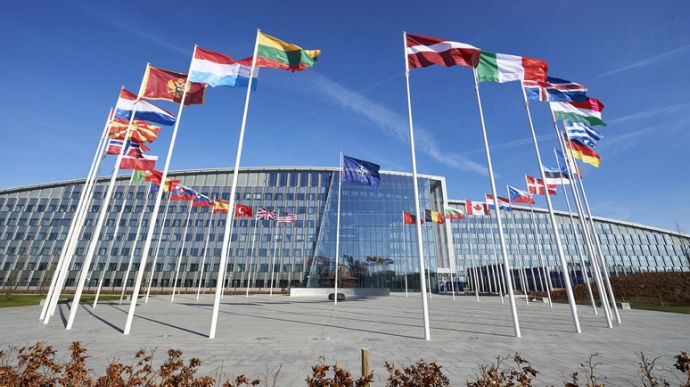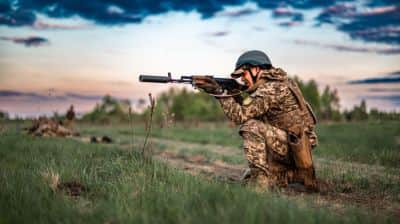NATO no longer allows temporary occupation of its territory in event of Russian attack – NYT

Russia's full-scale invasion of Ukraine has prompted the North Atlantic Treaty Organisation to restore its own military capabilities to Cold War-era levels, as well as to reconsider its approach to deterrence on its eastern borders.
Source: The New York Times
Details: As The New York Times wrote, NATO is rapidly moving from what the military calls deterrence by retaliation to deterrence by denial.
Previously, in the event of a Russian invasion, member states had to hold out until allied forces, mainly the US, came to their aid and retaliated to push the Russians back.
But after the Russian atrocities in areas it occupied in Ukraine, Poland and the Baltic countries no longer want to risk any period of Russian occupation. As in the first days of the Ukrainian invasion, Russian troops took land larger than some Baltic nations.
"Deterrence by denial" means, on the contrary, the permanent location of allied troops near the border with the Russian Federation, more integration of American and allied war plans, more military spending and more detailed requirements for allies to have specific kinds of forces and equipment to fight, if necessary, in pre-assigned places.
Quote: "The intention is to make NATO’s forces not only more robust and more capable but also more visible to Russia, a key element of deterrence," The NYT said.
One of the practical results of the concept of "deterrence by denial" is the increased role of NATO's allied commander Europe, General Christopher Cavoli, who also commands American forces in Europe.
For the first time since the Cold War, a NATO official of this level combines American and allied plans for conducting military operations, including at sea, in the air, in space, and in cyberspace, a high-ranking NATO official told The New York Times on condition of anonymity.
According to the official, the countries of Eastern Europe will know exactly what NATO intends to do for their protection. The Alliance will also increase defence planning requirements and may prohibit the transfer of certain units necessary to ensure the security of allies.
As part of strengthening the defence capabilities of the North Atlantic Alliance, a new spending plan, at least two per cent of gross domestic product on defence, will be agreed upon at the next NATO summit in July. In the Alliance, spending in the region of 2.5%-3% of GDP is considered sufficient, the NATO official clarified.
Journalists fight on their own frontline. Support Ukrainska Pravda or become our patron!





